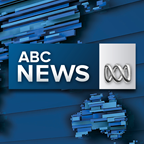
Posted
"Americans are really wonderful people," says Henry Rollins. "America, however, is not a very nice place."
For more than 35 years Rollins has been America's professional angry white man.
He says the 2016 presidential election left him feeling "so awful and so unstable and so depressed to the level where my DNA was depressed".
Rollins is not alone. President Donald Trump's unexpected ascent and divisive rhetoric has hit many musicians hard.
Among the setbacks has been the President's order to decommission the National Endowment for the Arts, potentially ending half a century's support for the arts.
"I make fun of him as I'm wont to do," says Rollins, "but I take him very seriously."
From opera to punk
How can musicians respond to a turbulent political landscape?
As I watched last year's election and subsequent protests I considered the long history of music activism.
From politically savvy operas by Monteverdi and Mozart through to the protest songs of the 1960s and subsequent waves of punk, hip hop and rap.
Since the election, I've met and interviewed many American composers, musicians and academics who deploy politics in their work, whether introducing, renewing or continuing forms of activism.
Trump has provoked many musicians to respond through their words, their actions and of course their music, which has injected a renewed sense of politics and ideology into contemporary music.
Every damn thing is political
Of all the people I spoke to, though, Rollins was the most outspoken.
Since fronting punk band Black Flag in the 1980s he's reached for ever-changing mouthpieces — solo releases, spoken-word gigs, radio shows and TV. He currently pens a blistering op-ed for The LA Weekly.
I met Rollins in Los Angeles, backpack by his side after touring his latest spoken-word show through 19 countries. For several hours he attacked everything from neo-Nazis to Fox News.
"In this country almost every damn thing is political. And so every damn opinion's political. Your paycheque's political, traffic's political."
Rollins' conscience grew while touring America's small towns with Black Flag, where he saw inequality first hand.
"Punk rock to a certain degree politicised me. But it was the streets of America — what I was seeing, what I was hearing — combined with Ronald Reagan ... How we are informed now is how we were informed in the '80s and what came from that."
Sticks and stones
Punk music might seem obviously political, but any genre is a potential vehicle.
The 83-year-old composer Christian Wolff, for instance, treats chamber ensembles as a form of direct action.
His work Changing The System, written at the height of the Vietnam War, uses graphic notation and asks musicians to carefully listen to each other and come to a consensus on interpreting the score.
One of Wolff's other pieces invites amateurs to bond in workshops using simple objects like sticks and stones, as if creating an ideal new society.
Elsewhere, Shana L Redmond of the University of California in Los Angeles points to the anthem as a powerful civil rights tool for the African diaspora in America.
 Photo:
From the operas of Mozart to the lyrics of Kendrick Lamar, protest comes in many forms. (Getty Images: Ollie Millington/Redferns)
Photo:
From the operas of Mozart to the lyrics of Kendrick Lamar, protest comes in many forms. (Getty Images: Ollie Millington/Redferns)
She outlines a long history of artists who have deployed such works, from Paul Robeson and Nina Simone to Kendrick Lamar and Public Enemy's Chuck D.
Believe it or not, even opera can be political. The Princeton-trained David T Little has written four political operas, including Soldier Songs, which highlights the plight of veterans, and Dog Days, about a disintegrating working-class family.
Opera is valuable, Little says, because "it's the domain of big ideas". Little's latest work, JFK, takes a subtle and humanist look at the former president's final hours.
You can argue that opera has always been political. Mozart's The Marriage Of Figaro critiqued contemporary social hierarchies, long pre-empting the so-called "CNN opera" trend of John Adams Nixon in China and Anthony Davis's X: The Life And Times Of Malcolm X.
Political weapon of choice
Isn't there a risk, however, that political music can simply become propaganda?
"I think some of the best political music is not overtly political," says Rollins. "It's coming from a political direction, but you can't necessarily term it political."
He points to classic songs that are political without hitting listeners over the head, including Bob Marley and Peter Tosh's Get Up, Stand Up and Public Enemy's 911 Is A Joke.
Indeed Rollins long ago gave up music in favour of the spoken word. "If you feel you must say this in a song, I think you're kind of forcing it."
David T Little also cites recent pieces that function more as documentaries than agitprop.
Steve Reich's autobiographical string quartet Different Trains, for instance, compares the train trips the Jewish composer took in wartime America to those headed to Auschwitz.
As Little puts it: "The mirror has become the composer's political weapon of choice."
Topics: arts-and-entertainment, world-politics, government-and-politics, music-industry, music, united-states









 Add Category
Add Category

